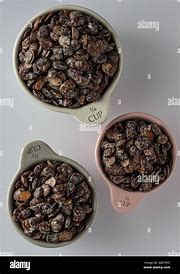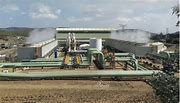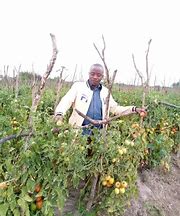In the bustling Central Market of Kaduna Metropolis, an ancient tradition meets modern scientific innovation. The aroma of fermented African locust beans, known locally as ‘Daddawa’, fills the air as researchers embark on a mission to revolutionize its production.
“As we delve into the rich history and cultural significance of ‘Daddawa’, we also embrace cutting-edge techniques to optimize its fermentation process,”
shares Dr. Nafisa M.N., lead researcher from the Department of Microbiology at Kaduna State University.
The journey begins by sourcing fresh African locust bean seeds from local vendors. These seeds are not just ingredients; they carry with them centuries of culinary heritage and community bonds. Bacillus subtilis, the fermenting organism crucial to this process, is meticulously isolated from traditional products like ‘Ogi’ and ‘Daddawa’.
“Through conventional biochemical tests and advanced 16S rDNA sequence analysis, we identify and harness the power of Bacillus subtilis for our innovative fermentation methods,”
explains Dr. Abdulfatai K., another key member of the research team.
To blend tradition with technology, glassware replaces traditional vessels like calabashes, while aluminum foil takes over from natural materials such as sacks and leaves. The transformation is not just visual; it signifies a shift towards precision and consistency in production.
In their quest for optimization, researchers explore a spectrum of variables using Response Surface Methodology (RSM). Locust bean weight, fermentation duration, and inoculum volume become puzzle pieces in their quest for perfection.
“With Design Expert software guiding us through Central Composite Design (CCD), we fine-tune these variables like maestros conducting a symphony,”
remarks Dr. Orukotan A.A., emphasizing the meticulous approach taken during experimentation.
The optimization journey culminates in remarkable achievements: a protein yield of 98 ± 0.20% under optimal conditions—50 g of locust beans, a 5-day fermentation period, and 0.6 mL of inoculum. This represents not just an improvement but a reimagining of ‘Daddawa’s’ nutritional profile.
“The optimized product boasts enhanced nutritional values compared to its traditional counterpart—a testament to the power of science in elevating indigenous foods,”
notes Dr. Idris S., underscoring the broader implications beyond this specific study.
As reported by www.africanclimatereporter.com
The findings echo far beyond laboratory walls; they resonate with communities relying on ‘Daddawa’ for sustenance and celebration alike. The optimization process doesn’t just enhance yield—it paves the way for standardized parameters that could transform industrial-scale production.
Tradition and technology intertwine harmoniously in this narrative—where past wisdom informs future innovation, where cultural staples evolve through scientific precision. In each bite of optimized ‘Daddawa’, one can taste not just flavor but also resilience—an emblematic fusion of heritage and progress.









Leave feedback about this